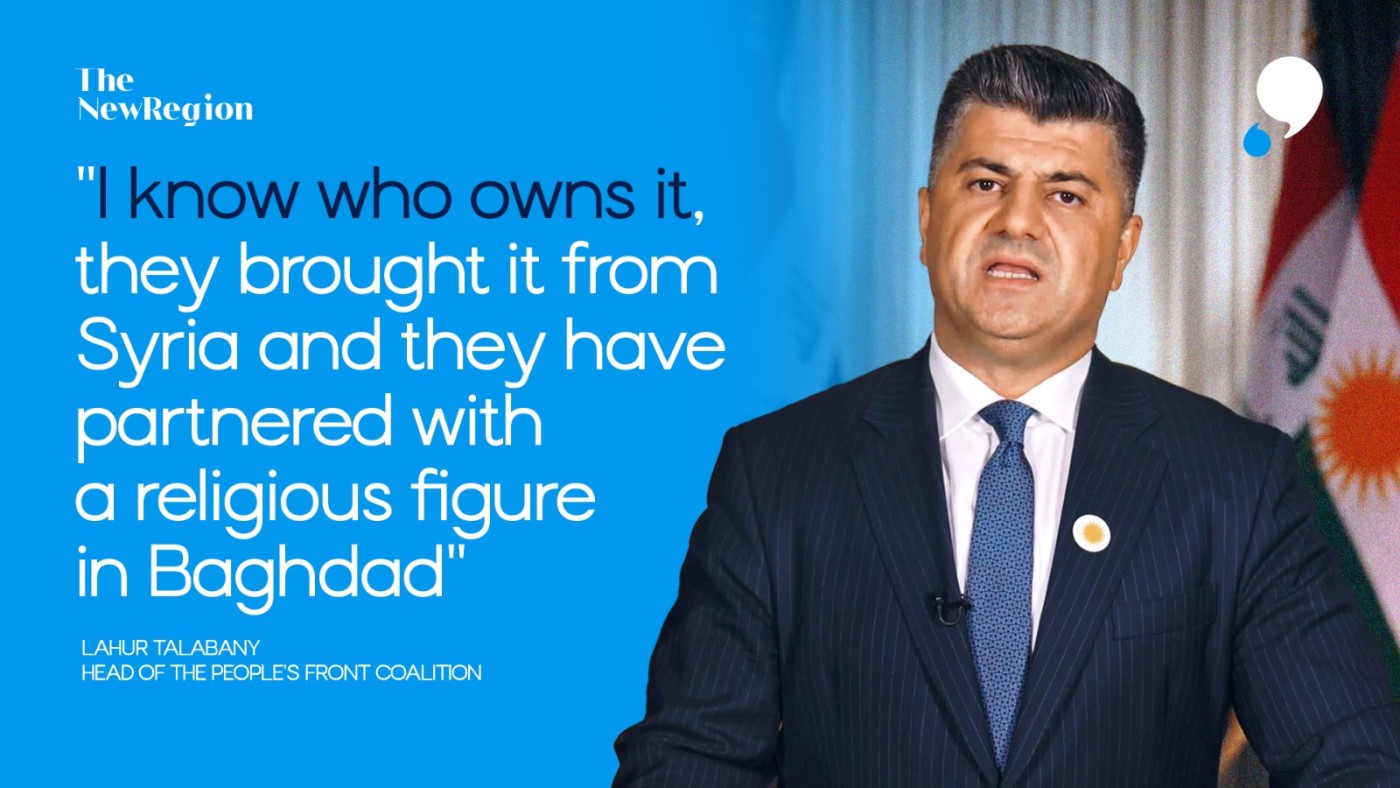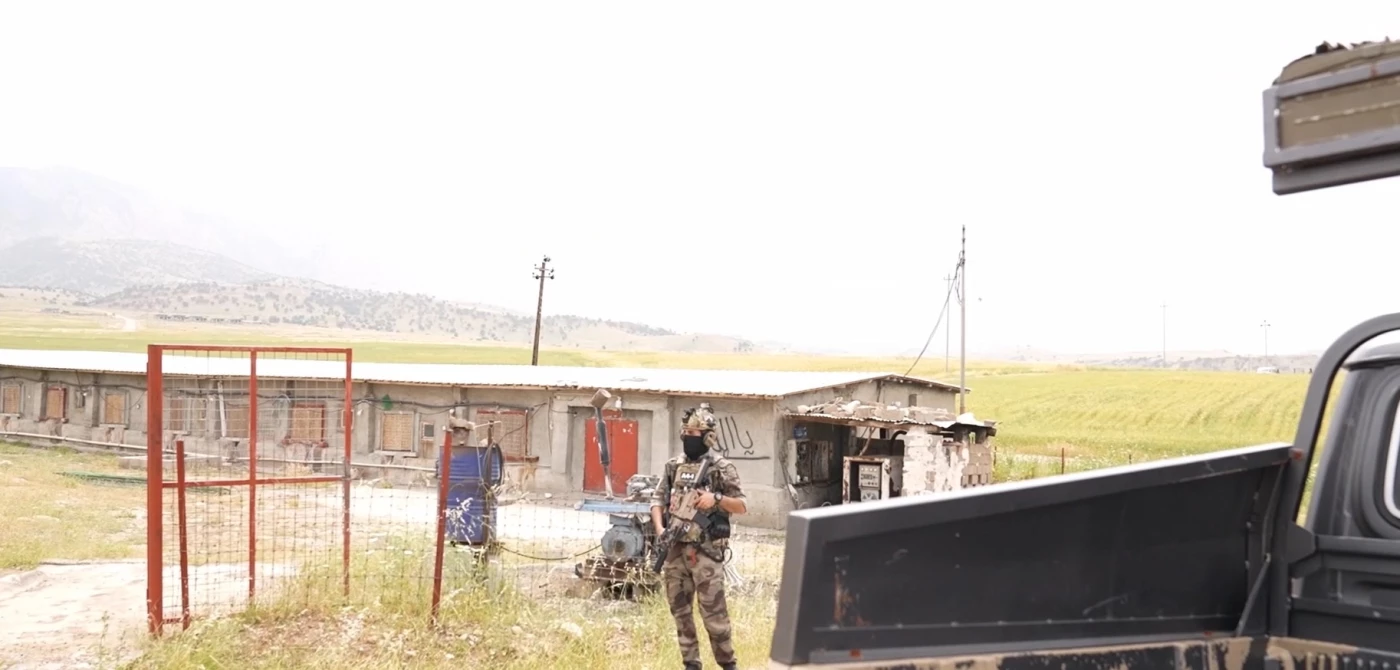ERBIL, Kurdistan Region of Iraq - Over five months after a narcotics lab was seized near Sulaimani province’s Darbandikhan and despite the Iraqi ministry of interior’s insistence on investigating the lab, sources told The New Region that influential politicians in the area are halting the process.
The lab, according to information obtained by The New Region, was used to bring raw materials from neighboring countries and produce captagon pills that would in return be sold both locally and smuggled across borders to neighboring countries as well.
According to documents that The New Region has seen, Iraqi Prime Minister Mohammed Shia’ al-Sudani is personally overseeing probes launched into the matter at hand, directing the interior ministry to dig deep into not only the lab, but also the trade route of drugs in parts of the country, including Sulaimani province, which the documents describe as a main route for drug trafficking.
Similarly, a report from the Iraqi intelligence has specified that a number of officials, from Sulaimani’s ruling Patriotic Union of Kurdistan (PUK), have turned the province into a main route of drug trade. The report has detailed that drug traffickers from Uzbekistan, Afghanistan, and Iran deliver the drugs from Iran’s Baneh city to the border areas in Qaladzeh and through there to Sulaimani, then Kifri, and then southern Iraqi provinces.
The Iraqi interior ministry spokesperson told The New Region that over the past year, the volume of seizing narcotics has increased by almost 210 percent and at least 569 drug trafficking networks have been busted over the past two years.
Speaking specifically about the lab near Darbandikhan, Miqdad Miri said “a specialized committee has been formed to investigate the lab and investigations have not stopped.”
However, The New Region understands that influential political figures in the region have repeatedly created obstacles in the way of the ongoing investigations due to huge sums of profits they make out of the business.
A number of suspects have been arrested in a joint raid by Kurdish and Iraqi security forces. Many sides, however, believe those arrested were not responsible for setting up the, nor were they even aware what was happening inside the lab.
In a gathering with his supporters while campaigning for the October 20 parliamentary elections of the Kurdistan Region a few days ago in Darbandikhan, Lahur Talabany, the former co-president of the PUK, affirmed the authenticity of the narcotics lab in the city.
“They have brought drug labs here, and the poor man that was arrested has nothing to do with the lab. I know who owns it, they brought it from Syria and they have partnered with a religious figure in Baghdad,” Talabany said. “It is the top authority in the party.”

Talabany has a massive support and a significant amount of followers in Sulaimani province.
After disagreements with current PUK leader Bafel Talabani, Lahur Talabany was removed from his position in 2021. He entered the election race with a list of his own – The People’s Front.
The New Region spoke to a number of traffickers who are now serving sentences in the Kurdistan Region’s prisons.
Some of them have somehow been tricked into the business, while others are driven by greed.
“One time my brother asked me to transfer a significant amount of drugs from Iran through Halabja, I was afraid at first, but he told me that they do not suspect women and I will not get arrested,” one of the convicts said on the condition of anonymity.
“I did it twice and I was no longer afraid, but one time it was obvious that someone had told on us and I was arrested in one of Erbil’s checkpoints,” she added.
Others believe that the majority of those that end up partaking in the trade are influenced by greed and oftentimes the money offered to them is at an amount that they cannot possibly refuse.
“There needs to be a difference between the main dealer and the person that just transports it, and around 90 percent of those that are arrested are people who only transport it,” one convict told The New Region. “But let us not believe that all these people are tricked into it, at times the man transporting it does not know what he is transporting, but other times they are offered a significant amount of money that they would not refuse.”
Over 1,000 people were arrested on drug-related charges in the Kurdistan Region in the first seven months of 2024.
“Security forces have arrested 1,003 suspects in seven months. Of this number, 529 of them were traffickers and the other 474 were users,” Arkan Bibani, an official from the Kurdistan Region’s anti-narcotics department said.
Bibani said they “confiscated 194 kilograms of narcotic pills” when they made the arrests.
During the seven-month campaign, the anti-narcotics department confiscated over 170 kilograms of crystal meth, 653 grams of heroin, 177 grams of hash, 21 kilogram of opium, and 398 grams of marijuana, the official detailed.
According to data obtained by The New Region, as of June, there were 1,381 people charged with drug use or trade in Erbil’s prisons.
Drug trafficking has become a major challenge for Iraq and the Kurdistan Region, as the country shifts focus from combating terrorism to addressing the escalating drug crisis.
A delegation from the American Sterling Charity Foundation met with Erbil’s governor Omed Khoshnaw in June to discuss the opening of a rehabilitation center in the province.
The initiative came while another rehabilitation center is at the last stages of completion in the province’s Shaqlawa district, and two more centers are also being established in Sulaimani and Duhok provinces
Iraq's Ministry of Interior in early June announced that they had seized over 1.5 tons of drugs in the first half of 2024, with a total of five tons seized over two years.
Despite imposing severe penalties, Iraq continues to struggle with an escalating drug problem that has intensified since the US invasion in 2003.
The country has transitioned from a transit route for drugs from Iran and Pakistan to a drug manufacturing hub, as noted in a 2022 report by the Washington Institute.
The country faces substantial challenges, such as insufficient rehabilitation centers and overcrowded prisons, leading to high relapse rates among former inmates.
Iraq’s stringent narcotics laws, imposing death or life sentences for drug-related offenses, underscore the severity of the crisis but are yet to fully curb the increasing drug use and trafficking.
The UN Office on Drugs and Crime in July reported that Iraq and its neighboring countries have witnessed a “sharp increase” in captagon use and trafficking in recent years, warning that Iraq could become a key conduit for the flow of drugs in the region
“Iraq is at risk of becoming an increasingly important node in the drug trafficking ecosystem spanning the Near and Middle East,” read the report.
“There are three principal domestic drug trafficking corridors through which drugs are transhipped within and across Iraq, linked to particular historical and geopolitical developments, as well as related evolution and affiliations of criminal groups. They include the northern, central, and southern internal routes and connect the borders between Iraq and the Islamic Republic of Iran, as well as Türkiye, the Syrian Arab Republic, and Saudi Arabia in particular,” it added.



 Facebook
Facebook
 LinkedIn
LinkedIn
 Telegram
Telegram
 X
X


